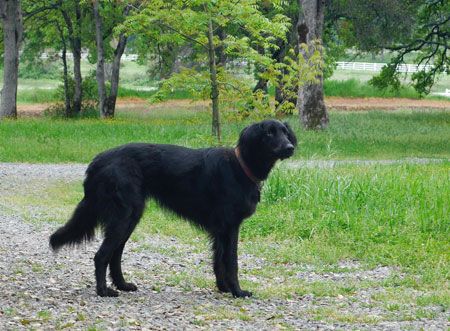Paralyzed dog makes strides (literally and figuratively)
A team from UC Davis helps a border collie recover after her skull was dislocated from her spine.

Ain't that a kick in the head! Leah is back on all fours after a severe neurologic injury from a suspected deer kick that left her paralyzed. (Photo courtesy of UC Davis.)
Following a suspected deer kick to the head, Leah, a 4-year-old female border collie, was treated by a local veterinary facility for a facial laceration. Other than the wound, Leah seemed normal and was sent home. But just two days later, she became non-ambulatory and could not sit up on her own.
Leah was treated for tetanus but did not improve. Fearing a spinal cord injury, Leah's veterinarians referred her to the University of California, Davis, veterinary hospital where they finally discovered the cause of her paralysis: Leah's skull had been dislocated from her spine, and her first vertebra and the back of the skull were fractured.
According to a UC Davis release, though faculty neurologists Pete Dickinson, BVSc, PhD, DACVIM, and Karen Vernau, DVM, MAS, DACVIM, and neurology resident Devin Ancona, DVM, attempted to reduce the dislocation through both surgical and nonsurgical methods, the amount of fibrous tissue buildup since the initial injury three weeks prior made spinal cord decompression surgery imperative.
The surgery was successful, and after a few days of recovery and close observation, Leah was able to go home, already able to support herself while lying sternally, according to the release.
A month after the surgery, Leah had progressed to standing without support and could take a few steps, which meant she was stable enough to begin physical rehabilitation at UC Davis' Integrative Medicine Service. Two weeks later, she was walking on her own. Leah is currently continuing physical rehabilitation at a local facility.